From 9th to 11th May, our Institute hosted a conference titled “Tribute to Prof. Stanisław Hałas and the 30th Anniversary of the Isotopic Geology and Geoecology Laboratory.” The main organizer of the conference was Prof. Mariusz Jędrysek from our Department of Applied Geology, Geochemistry, and Environmental Management. The conference was dedicated to the late Prof. Stanisław Hałas, a pioneer of isotopic geology in Poland, associated with Maria Curie-Skłodowska University in Lublin, who also collaborated with geologists from our Institute. In addition to a rich offering of scientific sessions, the conference also featured a cultural segment highlighted by a piano concert performed by the former Rector of the University of Wrocław, Prof. Adam Jezierski. During the event, a commemorative plaque in honor of Prof. Hałas was unveiled at our Institute.
Professor Stanisław Hałas. Born on 9 July 1945, in Stryjów. He completed his studies in physics at Maria Curie-Skłodowska University in Lublin from 1963 to 1968. He obtained his Ph.D. in 1973 and his habilitation in 1982. He was awarded the title of professor in 1992 and became a full professor in 1997. He was professionally associated with Maria Curie-Skłodowska University since 1968 and for nearly 50 years, Lublin was the hub of his scientific activities. Professor Stanisław Hałas was a highly esteemed author of over 250 scientific papers in the fields of mass spectrometry, geochemistry, isotopes, and geochronology, as well as the author or co-author of 24 patents. Throughout his career, he collaborated with numerous national and international research institutions across Europe and beyond. He also led several scientific societies and was a co-founder of the European Society for Isotope Research and an expert of the European Geosciences Union. One of Prof. Hałas’s major achievements includes his contribution to the development of the Mass Spectrometry Laboratory at the Institute of Physics of the UMCS. By creating new methods based on unconventional solutions in the analysis of light stable isotope ratios and vacuum technologies, he elevated the Lublin Laboratory to the global forefront. In recognition of his contributions to Polish Science, he was awarded the Knight’s Cross of the Order of Polonia Restituta, the Gold Cross of Merit, and the Medal of the Commission of National Education.
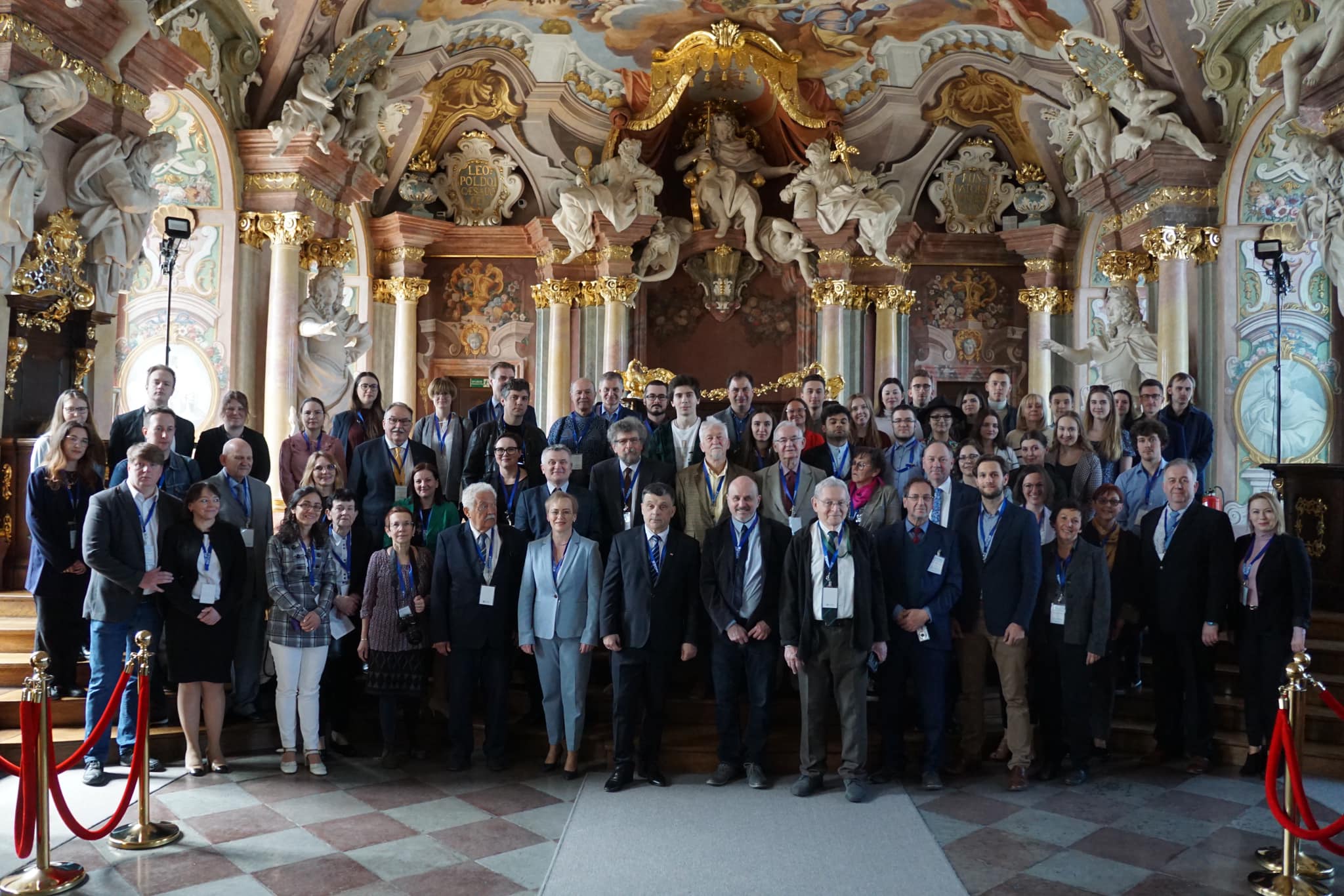
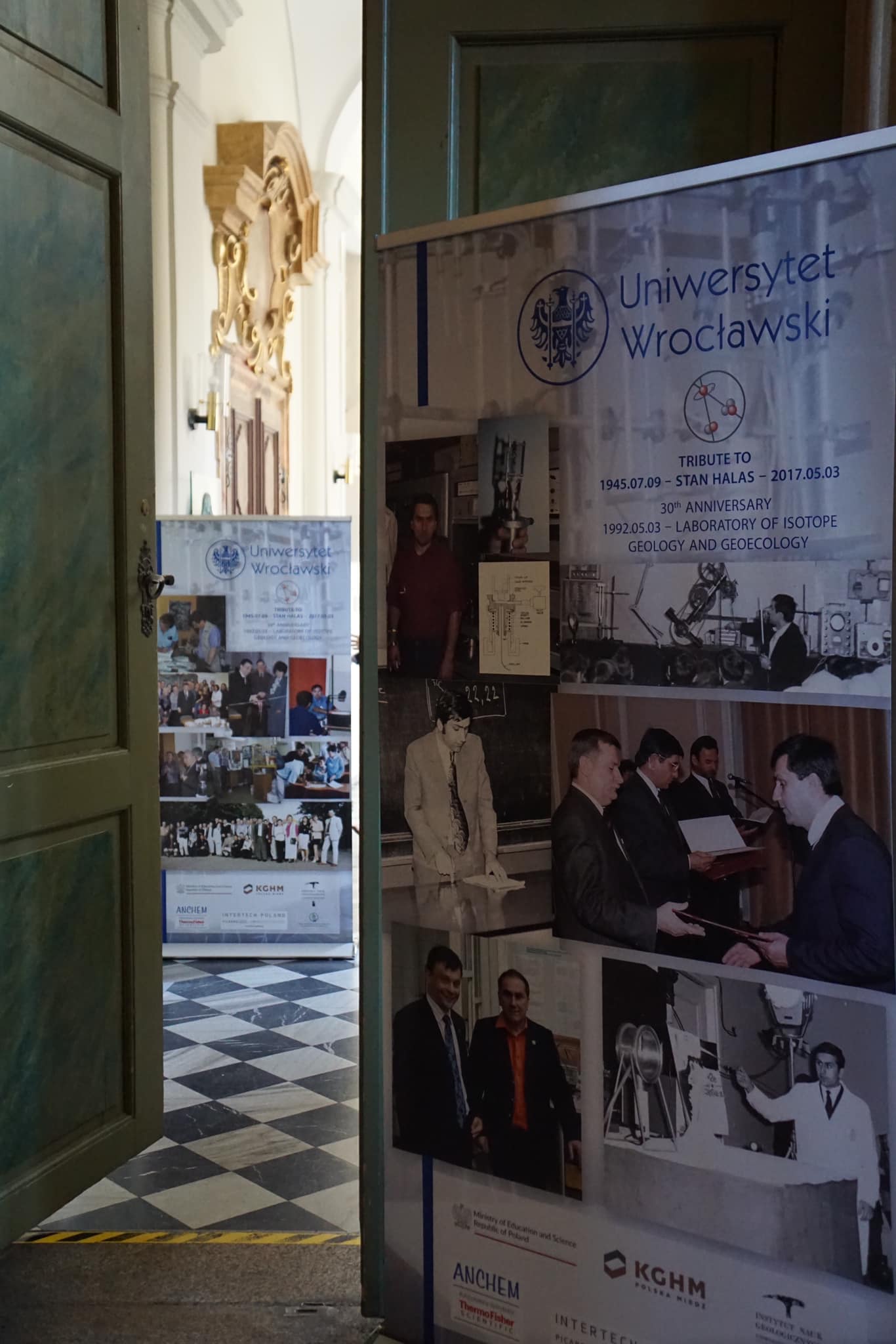
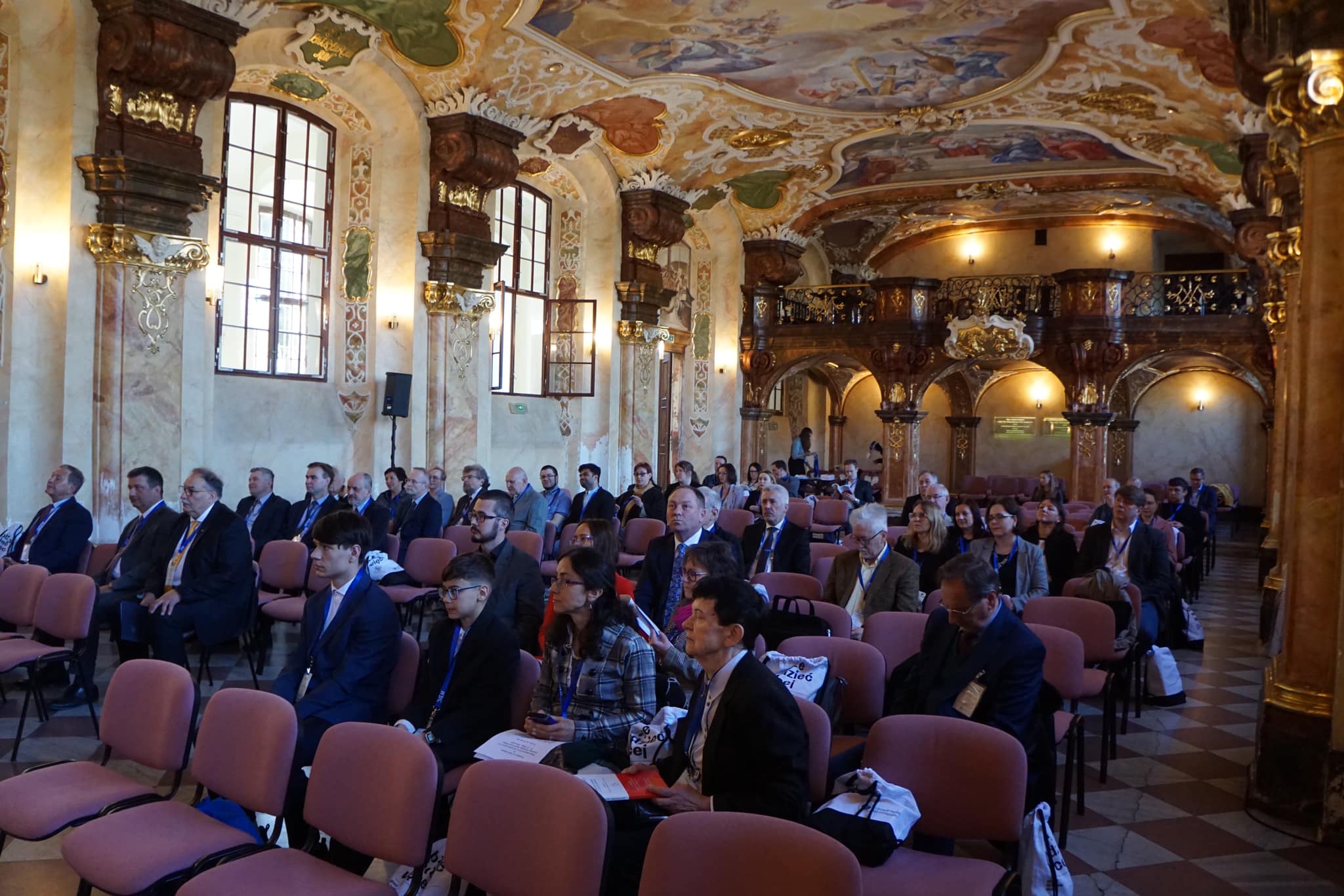
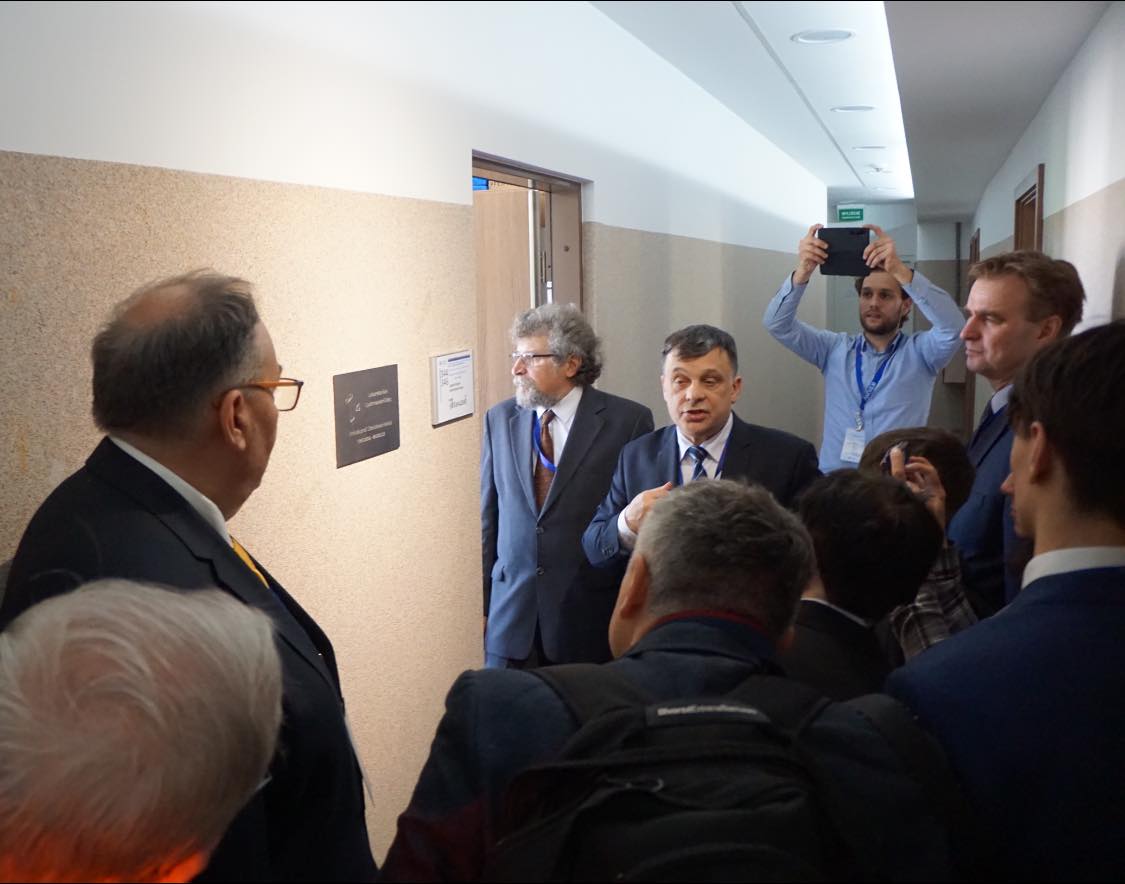
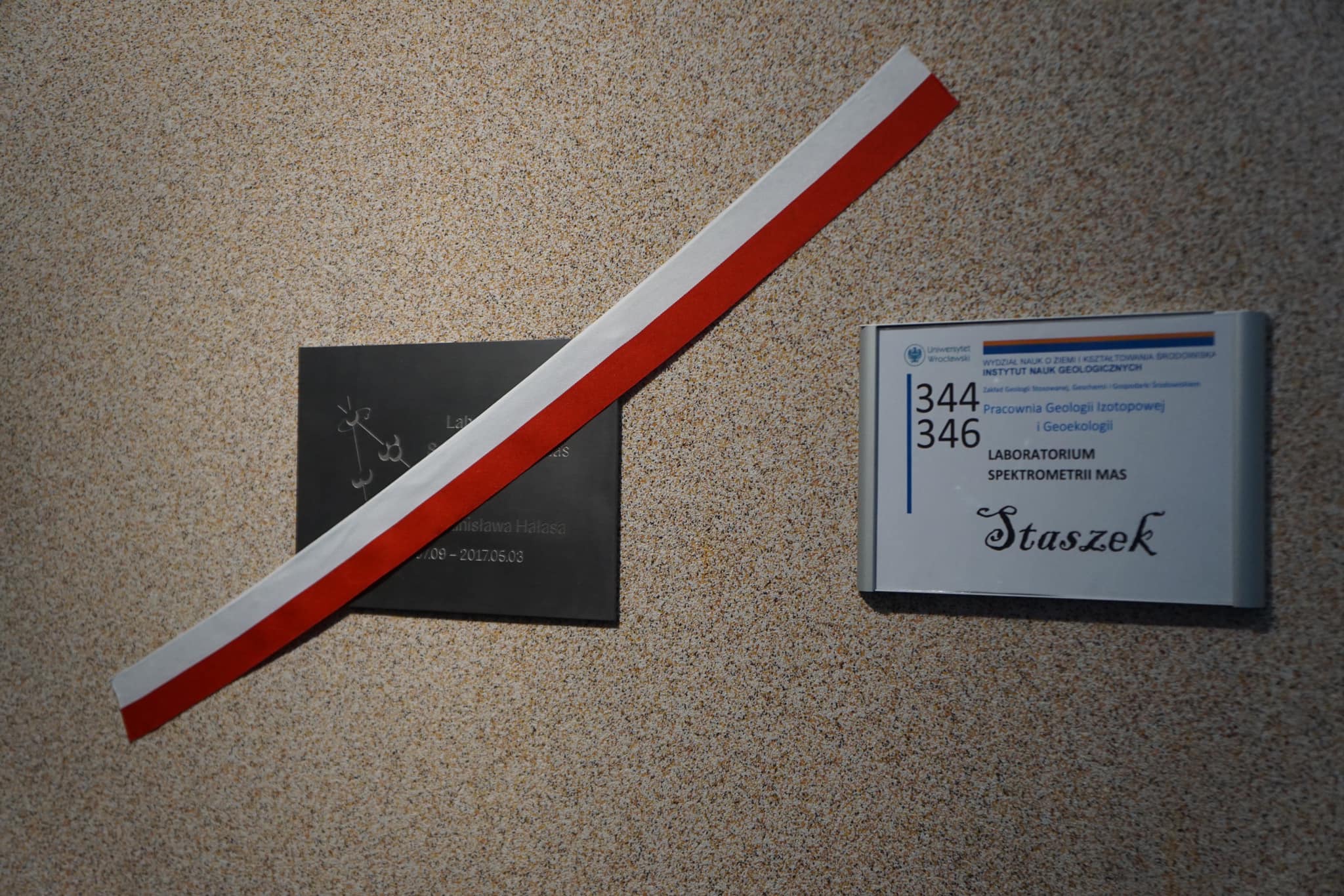
The Isotopic Geology and Geoecology Laboratory was established in 1992 by Dr. Mariusz Orion Jędrysek with the consent and support of the late Prof. Alfred Majerowicz and thanks to the employment of the late Mrs. Bernadeta Doroszko. The official inception of the Laboratory can be attributed to 3 May 1992. The foundation of the Laboratory was based on its director’s private funding, subsequent grants, and international collaborations, primarily due to the generosity of the late Prof. Stanisław Hałas. An essential contribution by Prof. Hałas was the provision of the BL8 pump for creating the Laboratory’s first vacuum line. With additional financial assistance from Prof. Mieczysław Pazdura, the first vacuum line was already operational in July 1992. The Isotopic Geology and Geoecology Laboratory is the first research unit of its kind in the natural sciences faculty of a higher education institution in Poland. Today, after 30 years of operation, it is equipped with state-of-the-art apparatus, including several mass spectrometers. At the turn of 2020 and 2021, the Laboratory was supplemented with Picarro CRDS analyzers for measuring CO2, CH4, and N2O concentrations, as well as oxygen and hydrogen isotope composition in water, carbon in CO2 and CH4, and oxygen and nitrogen in N2O, including isotopomers. These devices are equipped with various peripheral and analytical components. Consequently, there is a gradual shift away from traditional vacuum systems, which were the foundation of the Laboratory’s establishment. Over the course of 30 years, numerous bachelor’s and master’s theses have been defended in the Laboratory, along with 14 doctoral theses, and one habilitation thesis. All the promoted doctors are employed in reputable scientific and industrial institutions in Poland and around the world. The topics covered by the Isotopic Geology and Geoecology Laboratory range from “deep” geology (igneous and metamorphic rocks, oceanic floor metamorphism) to exogenic processes, including the interaction between the biosphere and inanimate nature in relation to migration, mass balances, mobility, and pathways of creation or decomposition of organic and inorganic compounds. The current focus of the ten-member Laboratory Team in the past year has been on research related to:
– carbon and nitrogen isotope composition in organic matter of peat and sediments in the context of climate reconstruction,
– biogas yield from meadow biomass as part of a project carried out in collaboration with the Botanical Garden of the University of Wrocław, funded by the WFOŚiGW in Wrocław,
– nitrogen transformations in soil environments, particularly denitrification processes – a topic conducted by the team led by Dr. Dominika Lewicka-Szczebak in the NAWA “Polskie Powroty” project and the internal IDUB grant, titled Nitrogen in Agricultural Ecosystems: Tracking Fertilizer Transformations into Gases (N2O and N2) using Isotopic Methods,
– anaerobic decomposition of organic matter, with a focus on pathways of transformation of various organic acids that act as precursors for methanogenesis,
– polymers such as lignin, cellulose, and hemicelluloses from sediments and fossil wood of varying ages and degrees of maturity, primarily led by Dr. M. Bucha in cooperation with the University of Silesia in Katowice.
– collaborative research with the Polish industry, mainly mining.
